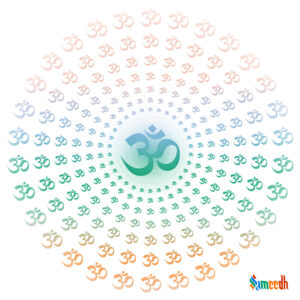The term “Vishishtadvait” translates to “qualified non-dualism,” indicating a nuanced understanding of the relationship between the individual self (Jiva), the universe, and the supreme reality, Brahman.

Vishishtadvaita Vedanta, which translates to “qualified non-dualism,” is a prominent school of Hindu philosophy that was founded by the 11th-century philosopher Ramanujacharya (Ramanuja). It represents a synthesis of the Advait Vedanta (non-dualistic) and Dvait Vedanta (dualistic) in Vedanta schools, incorporating elements of both while asserting its own unique perspective on the nature of reality and the relationship between the individual soul (jiva) and the Supreme Reality (Brahman).
Key aspects of Vishishtadvaita Vedanta include:
- Non-dualism with qualification: Unlike Dvait Vedanta, which posits a strict duality between the individual soul and Brahman, Vishishtadvait Vedanta maintains that while there is a fundamental unity between the individual souls and Brahman, there are also qualitative differences. Brahman is the all-pervading reality, and the individual souls are its inseparable attributes.
- Brahman: Brahman is the ultimate reality in Vishishtadvait Vedanta, and it is characterized by qualities such as omnipotence, omniscience, and omnipresence. Brahman is the inner controller of the universe and the material and efficient cause of creation.
- Individual souls (Jivas): The individual souls are considered distinct entities, eternally existing as part of Brahman. They are not separate from Brahman but are qualitatively different from the Supreme Being. Each soul retains its individuality while being interconnected with the whole.
- Concept of Sarira-Sariri Bhava: According to Vishishtadvaita Vedanta, the relationship between the individual souls and Brahman is likened to the relationship between the body (sarira) and the soul (sariri). Just as the body is dependent on the soul for its existence and functioning, the individual souls are dependent on Brahman for their existence, consciousness, and attributes. However, unlike the body-soul analogy in Advait Vedanta, where the body is considered ultimately unreal, in Vishishtadvaita, the individual souls are considered real and eternal entities.
- Brahman as Saguna Brahman: Vishishtadvaita Vedanta emphasizes the worship of Brahman in his personal, qualified form (Saguna Brahman), particularly as Lord Vishnu or Narayan. Brahman is viewed as possessing infinite auspicious attributes (guna), such as compassion, grace, and omniscience, which are accessible to the devotees through loving devotion (bhakti).
- Relationship with Brahman: In Vishishtadvait Vedanta, the relationship between the individual soul and Brahman is that of the part to the whole, or the body to the soul. The individual souls are considered dependent on Brahman for their existence and sustenance.
- Bhakti (Devotion): Bhakti (devotion) is considered the principal means of attaining spiritual realization and liberation (moksh) in Vishishtadvaita Vedanta. Devotees cultivate a deep and loving relationship with Saguna Brahman through various devotional practices, such as prayer, worship, singing hymns of praise, and engaging in acts of service (seva). Through unwavering devotion and surrender to the divine will, devotees seek to attain union with Brahman and eternal bliss.
- Scriptural authority: Vishishtadvaita Vedanta has had a profound impact on Hindu theology, spirituality, and devotional practices, particularly within the Sri Vaishnava tradition. Its synthesis of non-dualism and qualified dualism, coupled with its emphasis on loving devotion and surrender to the personal form of God, continues to inspire millions of devotees in their spiritual quest for realization and divine union.
Vishishtadvaita Vedanta has had a profound impact on Hindu theology, spirituality, and devotional practices, particularly within the Sri Vaishnava tradition. Its synthesis of non-dualism and qualified dualism, coupled with its emphasis on loving devotion and surrender to the personal form of God, continues to inspire millions of devotees in their spiritual quest for realization and divine union.